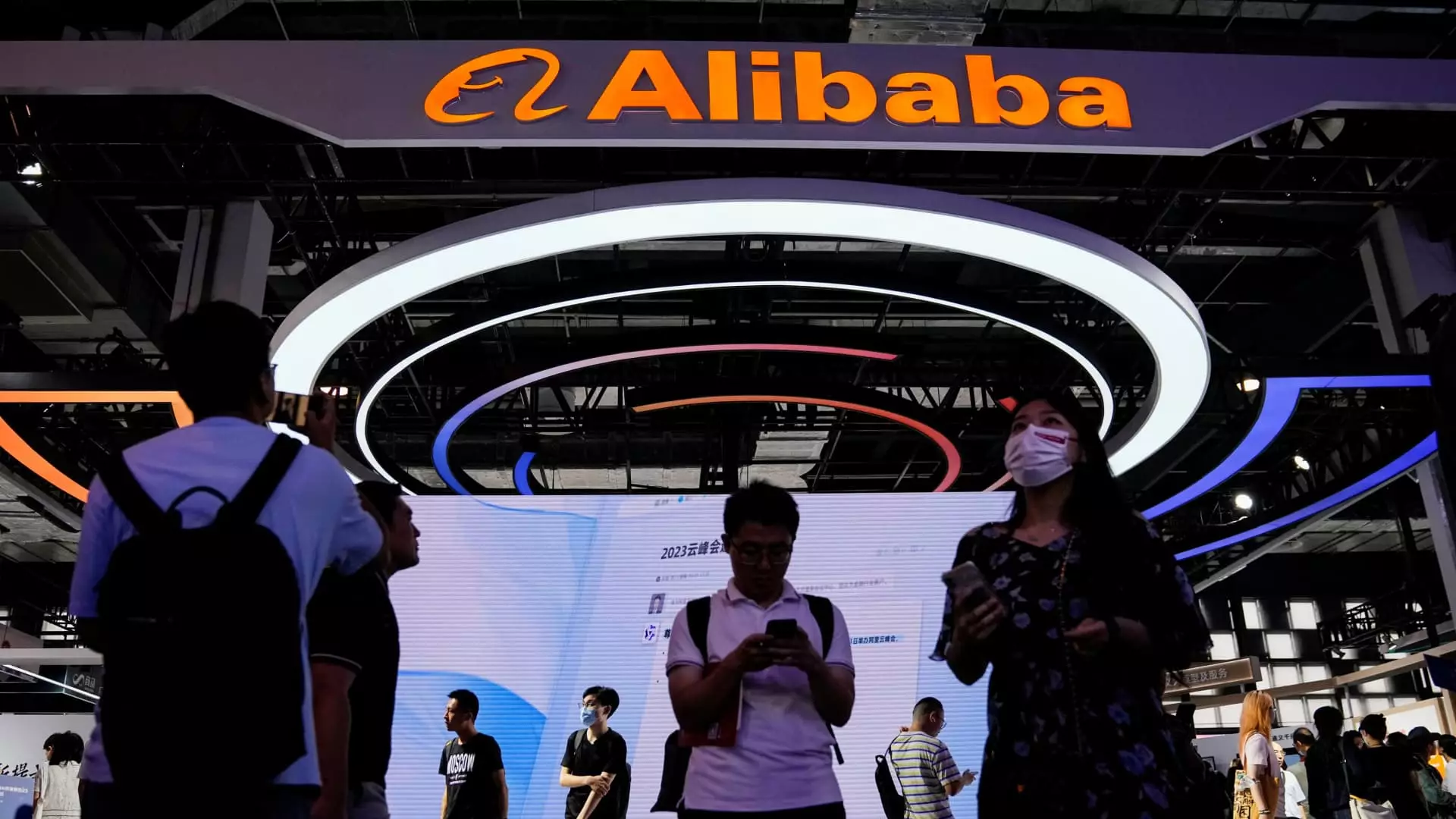In a significant announcement on Tuesday, Alibaba revealed a staggering price reduction of up to 85% for its large language models (LLMs). This move, made by Alibaba Cloud, the company’s cloud computing arm, aims to make its AI technologies more accessible to businesses. The visual language model, Qwen-VL, which allows the simultaneous processing of text and images, is at the forefront of this price drop. Despite the substantial cut, Alibaba’s shares experienced minimal movement, with a slight increase of 0.5% during the day’s trading in Hong Kong, reflecting perhaps investor skepticism about the immediate impact of such pricing strategies on the company’s overall valuation.
The price cut signifies an escalating arms race among Chinese tech powerhouses, each vying to capture a significant market share in the burgeoning field of artificial intelligence. Much like Alibaba, other tech giants such as Tencent, Baidu, JD.com, Huawei, and Bytedance have launched their LLMs over the past 18 months, seeking to leverage the public’s excitement surrounding generative AI technologies. This competition reflects the broader trend in the tech industry, where companies are constantly innovating and adapting to gain an edge, particularly in the much-coveted AI sector.
This isn’t Alibaba’s first initiative to lower its pricing for AI products. Earlier this year, in February, they slashed prices of several core cloud products by as much as 55%. Moreover, in May, the company had already enacted a price jog of 97% specifically on the Qwen AI model to stimulate interest and uptake among potential clients. This consistent approach to pricing showcases Alibaba’s strategy of aggressive market penetration through cost leadership, aiming to establish its offerings as not only innovative but also affordable.
Large language models, commonly referred to as LLMs, are sophisticated AI algorithms designed to analyze and generate human-like text based on extensive datasets. They serve as foundational technologies for the contemporary generation of AI applications, exemplified by OpenAI’s well-known ChatGPT. However, Alibaba is strategically opting to focus on enterprise applications for its models rather than consumer-facing chatbots. This distinction may reflect a calculated decision to tap into a market where businesses seek advanced solutions to enhance their operational efficiency.
Enterprise Adoption of AI Technologies
In a notable accomplishment, Alibaba highlighted that its Qwen models have garnered the attention of over 90,000 enterprise users. This figure suggests a growing acceptance and reliance on AI tools among businesses looking to improve productivity and decision-making. As organizations increasingly recognize the value of AI capabilities, Alibaba’s efforts to enhance its product accessibility positions it well within a sector that is only expected to expand in the coming years.
As the landscape of AI technology continues to evolve, Alibaba’s aggressive pricing strategy may not only lead to greater adoption of its models but also significantly alter the competitive dynamics in the marketplace. By fostering an environment of affordability, Alibaba could encourage more enterprises to experiment with AI, driving innovation and potentially creating new applications that benefit a range of industries.
However, there remains an underlying question regarding the sustainability of such price reductions. As competitors also adjust their strategies, Alibaba must ensure that it does not erode profit margins to an extent that could undermine investment in future advancements. The coming months will be crucial for Alibaba as it navigates this balancing act of fostering growth while maintaining its financial health.
Alibaba’s considerable price reductions on its AI models indicate a strategic play to solidify its presence in the rapidly evolving technology market. As competition intensifies, it will be vital for Alibaba to innovate continuously while navigating the challenges posed by both market demands and the sustainability of its pricing strategies.


Leave a Reply